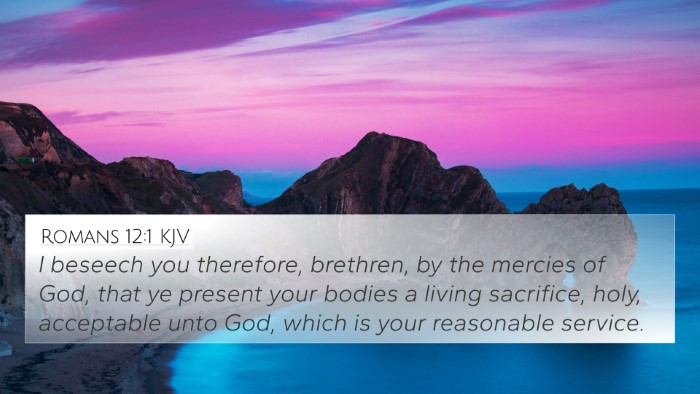Understanding 2 Corinthians 6:1
Verse: "We then, as workers together with him, beseech you also that ye receive not the grace of God in vain."
This verse emphasizes the significant role of believers in their partnership with God. The apostle Paul appeals to the Corinthian church to fully embrace the grace of God, cautioning against receiving it without genuine response and action.
Commentary Insights
Insights from public domain commentaries provide a rich interpretation of this verse:
- Matthew Henry: He underscores the urgency of responding to God's grace. Henry points out the collaborative nature of ministry, highlighting how believers, as ambassadors for Christ, are called to active participation in God's work. Receiving grace should lead to transformative action, not complacency.
- Albert Barnes: Barnes notes that Paul’s plea reflects his concern for the recipients of the letter. He emphasizes how grace is not merely a gift to be acknowledged but a power that should affect one's life and conduct. The integration of divine grace into daily living is crucial in the life of a believer.
- Adam Clarke: Clarke discusses the implications of 'receiving grace in vain' and stresses that believers should apply God’s grace practically. He elaborates that the worker's role is vital in a world that requires a demonstration of faith through actions, bringing spiritual truths into reality.
Bible Verse Cross-References
Several verses complement and connect with 2 Corinthians 6:1, offering a broader scriptural context:
- 2 Corinthians 5:20: "Now then we are ambassadors for Christ, as though God did beseech you by us: we pray you in Christ's stead, be ye reconciled to God."
- Ephesians 2:8-10: "For by grace are ye saved through faith; and that not of yourselves: it is the gift of God: Not of works, lest any man should boast. For we are his workmanship, created in Christ Jesus unto good works, which God hath before ordained that we should walk in them."
- Romans 12:1: "I beseech you therefore, brethren, by the mercies of God, that ye present your bodies a living sacrifice, holy, acceptable unto God, which is your reasonable service."
- James 2:26: "For as the body without the spirit is dead, so faith without works is dead also."
- Philippians 2:12: "Wherefore, my beloved, as ye have always obeyed, not as in my presence only, but now much more in my absence, work out your own salvation with fear and trembling."
- Galatians 5:25: "If we live in the Spirit, let us also walk in the Spirit."
- 1 Peter 4:10: "As every man hath received the gift, even so minister the same one to another, as good stewards of the manifold grace of God."
Connecting Themes
The themes of collaboration, grace, and the believer's responsibility are critical throughout Paul's epistles. This verse invites exploration of how believers are called to respond actively to God’s grace, promoting a life reflecting Christ’s teachings.
Tools for Bible Cross-Referencing
To delve deeper into these scriptures, here are some recommended tools and methods:
- Bible Concordance: A comprehensive tool to help locate verses and their connections.
- Bible Cross-Reference Guide: Designed to show links between various scriptures, enhancing understanding.
- Cross-Reference Bible Study: A method emphasizing thematic approaches to scripture through comparison.
How to Use Bible Cross-References
Utilizing cross-references can deepen your understanding of scripture, revealing interconnected themes across different books. Ensure to consistently examine context, which aids in grasping the full message.
Final Thoughts
In summary, 2 Corinthians 6:1 serves as a powerful reminder of the responsibility that accompanies grace. Believers are urged to actively participate in their faith journey, aligning their lives with the commandments and grace offered by God.
Questions for Reflection
Consider the following as you meditate on this verse:
- How does the concept of working together with God shape your understanding of spiritual growth?
- In what ways can you ensure that you do not receive God's grace in vain?
- What practical steps can you take to embody the teachings found within this verse?

















